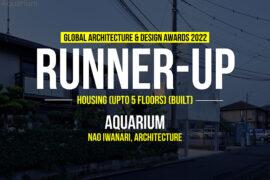Architects Askar Ramazanov + Archiproba Studios}
Location Chekhov, Russia
Architects in Charge Askar Ramazanov, Tamara Muradova
Master Plan Meganom
Area 380.0 m2
Project Year 2017
Photographs Ilya Ivanov
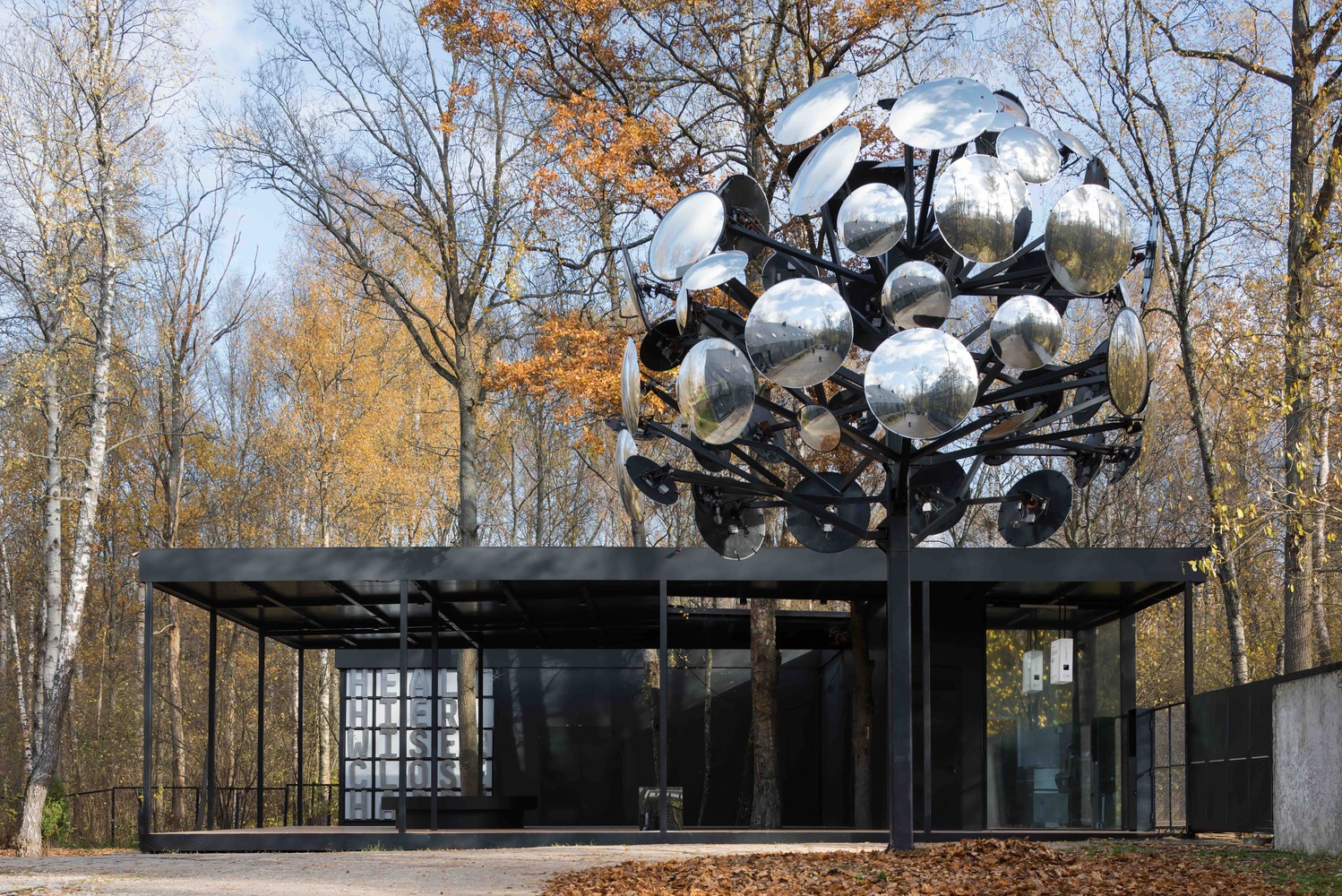
The Chekhov APi is hidden in a forest and is not easy to find without having geo-location coordinates. An information pavilion with a terrace is situated at the entrance to the residence and provides shelter from the rain for newly arrived residents and acts as a bus stop between the past and the present, man-made and natural. Next to the pavilion lies the entrance courtyard turned into a Robotic Sculpture Garden by using multiple digital art-objects and installations. The entrance area immerses guests and residents into a special environment of this countryside place.

The Science / Creative residence Chekhov APi is located 60 minutes and 60 kilometres from Moscow near the city of Chekhov. An area of 210 hectares accommodates an educational campus (10 ha) and a science-art park which is in the process of construction. First phase of the masterpan were designed by architectural bureau Meganom. Second phase were developed by Askar Ramazanov and Sander Lap (Dutch landscape and urban design studio). The buildings of the educational campus are designed by international architectural bureau Meganom including the – black campus building on cover photo. The Info-pavilion designed by Archiproba Studios and the entrance area with an art-objects done by Askar Ramazanov in collaboration with scientists, media artists and makers.
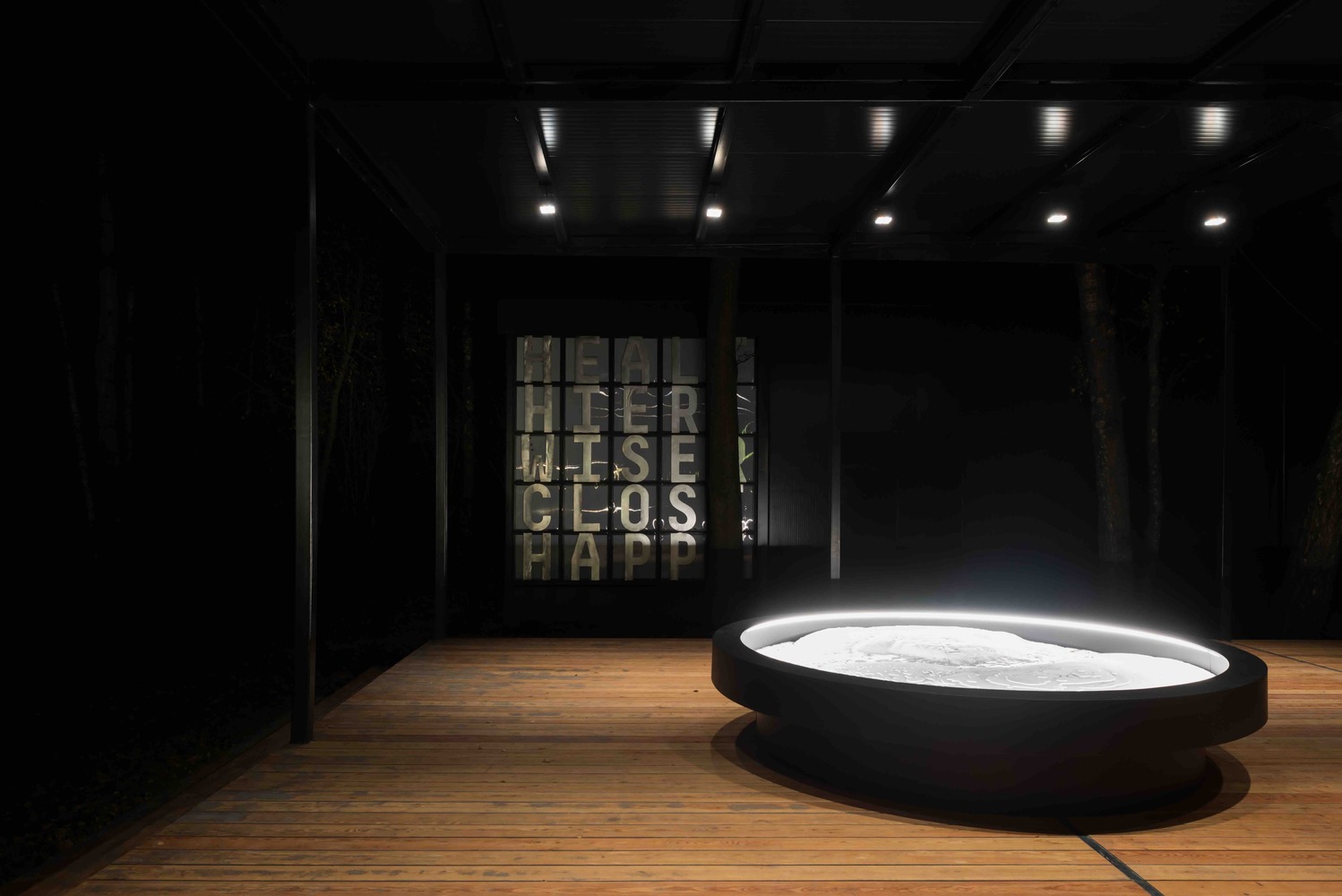
The information pavilion includes several functions: it is a meeting point and a place to learn about the residence, a summer reception, a place to receive all the necessary information regarding events and the opportunities at the residence, a sports equipment rental, a workshop and a storage, a security checkpoint and living headquarters for staff.
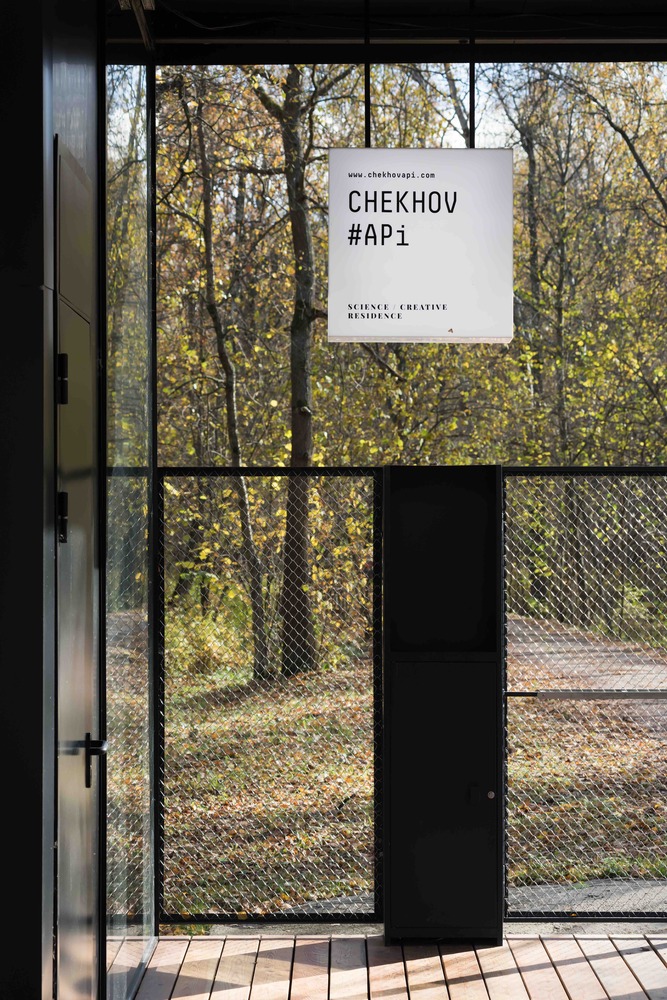
The architecture of the info pavilion follows the branding identity of the residence, the main graphic element of which is a digital grid. The architecture of the pavilion seems as if to drape the natural environment with its elements. The plan of the building is built around tree trunks. The black colour contrasts with the leafy surroundings of the environment cutting it with clear geometric forms. The even grid of the 4×4 meters pavilion’s frame overlays on the existing trees and in the places of their absence forms spaces according to the info pavilion’s programme. The info pavilion embodies the openness of the residence to people and to nature. The glass surfaces of the pavilion’s facade are mirrored reflecting the natural environment and incorporating it into the body of architecture. The columns supporting the roof of the pavilion dissolve in the black colour of the facade, while the roof seems to float over the terrace.
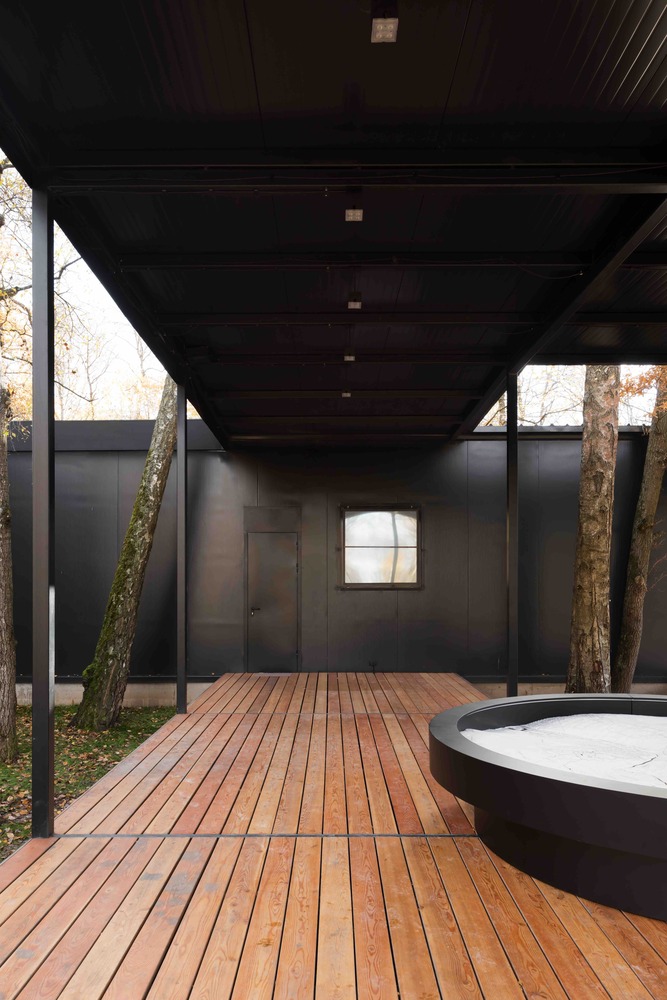
The info pavilion is designed as a gadget where details and functional elements can be installed in the course of its use and the development of the residence. One of the pavilion’s walls consists of a metal grid filled with frames with letters which are attached by magnets and can be configured in the desired order. The letters form the facade of the inner garden of the pavilion and also carry the principal message of the residence expressed in four words – Healthier, Wiser, Closier, Happier – which zone the entire territory of Chekhov Api.

The pavilion’s lighting allows changing the appearance of the terrace, both automatically during nightfall and manually by adjusting any light scenarios including movement tracking. Each lamp has four LEDs, two warm and two cold shades so the info pavilion can change not only the brightness but also the shade of colour reflecting from the wooden terrace made from larch.

The terrace of the info pavilion occupies the larger part of the building and is a place to learn about the area with a dedicated art- object called Atlas, situated on the terrace. This art-object acts as navigation source around the science and creative residence and its surroundings, illustrates the topographical and infrastructure development of the area. The Atlas is made of layers of acrylic stone delicately sawed and placed in reliefs emphasizing the landscape’s topography and also demonstrating the possibilities of digital fabrication precision. The metallic ring framing more than 400 hectares of territory in a 1:1000 scale serves as a backlight and completely changes the perception of the art-object at night. The light illuminates the end faces of the stone leaving a shadow on its horizontal relief surfaces making the object an inversion of its daytime appearance. This futuristic view of the Atlas corresponds to the place and residents who come here.
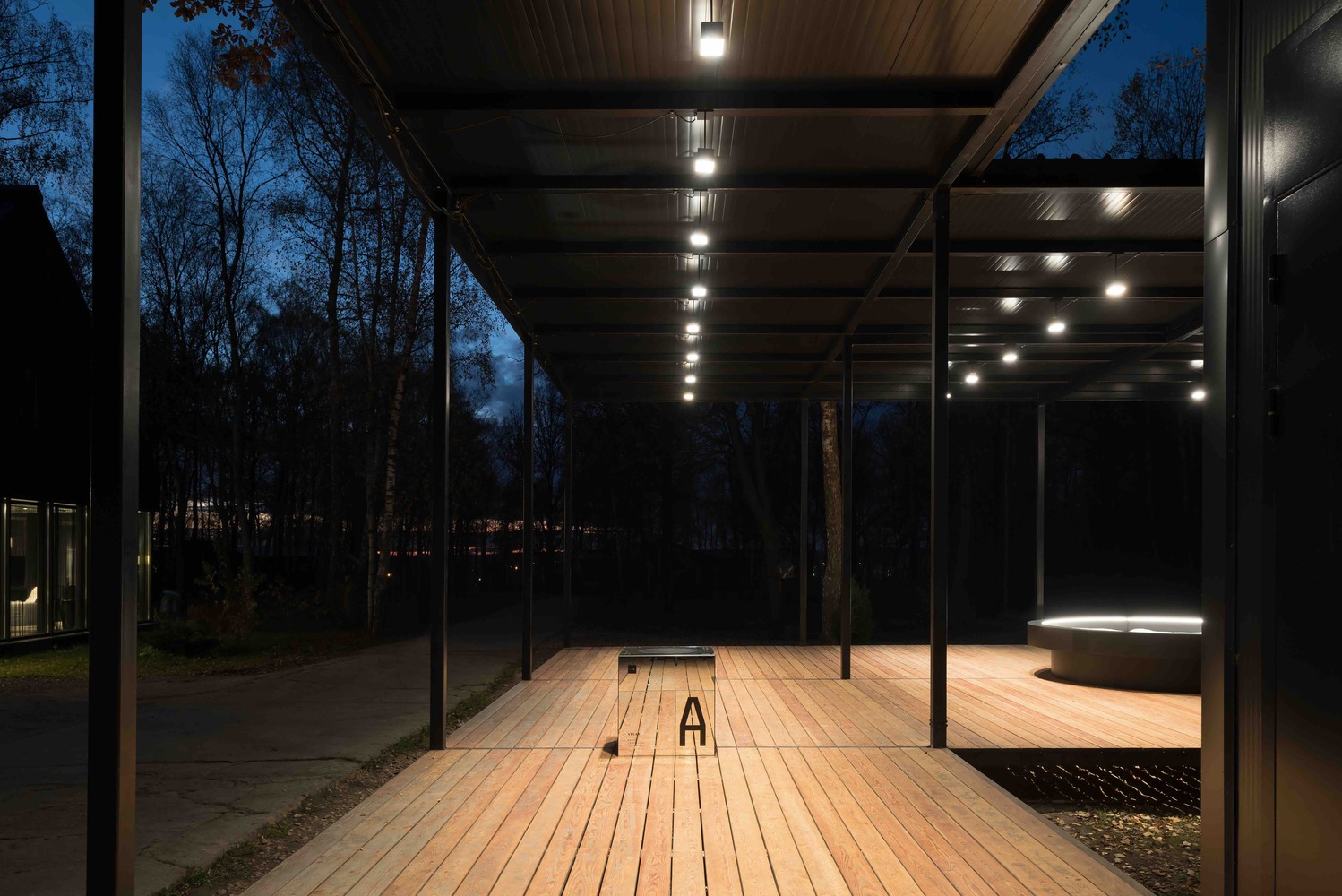
The pavilion forms the facade of the courtyard, the Robotic Sculpture Garden where several robotic sculptures are being installed, with two already in the process of installation – APi Tree and Chekhov Ai. APi Tree is a robotic tree with a height of 8 m and a crown diameter of 6 m. The art-object consists of 62 mirrors of different diameters controlled by microrobots. The APi Tree can watch what’s happening, recognise familiar residents and greet them using cameras installed in its trunk. The system of computerised vision is also capable of recognising human emotions and responding with the movement of mirrors, including extending 30 mirrors to 0.5 meters. The robotic tree is situated at the entrance and acts as a butler welcoming guests and residents. Having recognised a resident, the APi tree can help the person open the entrance gates or register for an event.
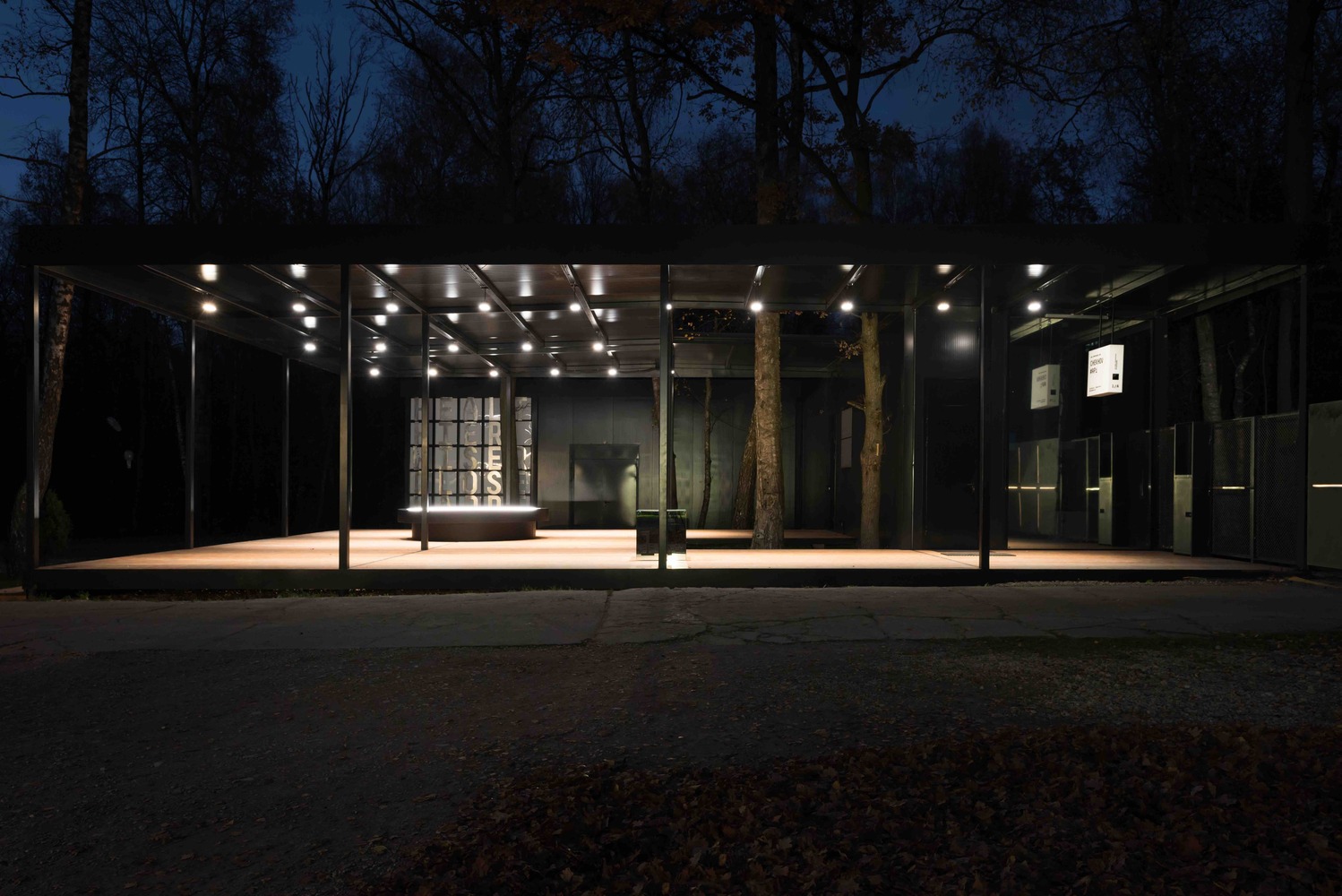
The Chekhov Ai robotic typographic sculpture is controlled by two robots and artificial intelligence. The 8×25 meters metal structure serves as a frame on which two robots move and place letters. The robot takes a letter from storage at the bottom of the structure, calculates the fastest route to the cell and places it in the letter’s location. The text creates the core of artificial intelligence, trained in literary works by Anton Chekhov to write in the writer’s style and also creates text based on what’s happening in the residence. The sculpture is capable of writing dozens of lines per day autonomously.
Prev Post
De Zwarte Hond | Zinder Cultural Center
4 Mins Read
Next Post
Cima House | Garza Iga Arquitectos
2 Mins Read

